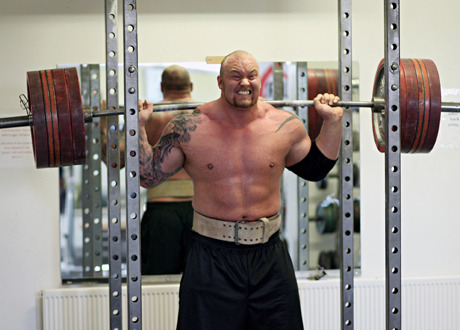Person A has a 1 RM squat of 150 lbs.
Person B has a 1 RM squat of 500 lbs.
A workout calls for 5x5 deadlifts at 80% of max.
That comes out to 120 lbs for A and 400 lbs for B.
RPE, or Rating of Perceived Effort, might be the same for both people, but when it comes to total work capacity and recovery time... are those the same also? Do they directly correlate to RPE?
Is the CNS taxing the same (linear with weight or exponential)??
When it comes to total work capacity and the beating being put on the body, are Camille and Hafthor on the same level if they are both working at the same % of max, or does Hafthor physiologically beat the shit out of himself more because his actual weight is higher?


Person B has a 1 RM squat of 500 lbs.
A workout calls for 5x5 deadlifts at 80% of max.
That comes out to 120 lbs for A and 400 lbs for B.
RPE, or Rating of Perceived Effort, might be the same for both people, but when it comes to total work capacity and recovery time... are those the same also? Do they directly correlate to RPE?
Is the CNS taxing the same (linear with weight or exponential)??
When it comes to total work capacity and the beating being put on the body, are Camille and Hafthor on the same level if they are both working at the same % of max, or does Hafthor physiologically beat the shit out of himself more because his actual weight is higher?


Comment